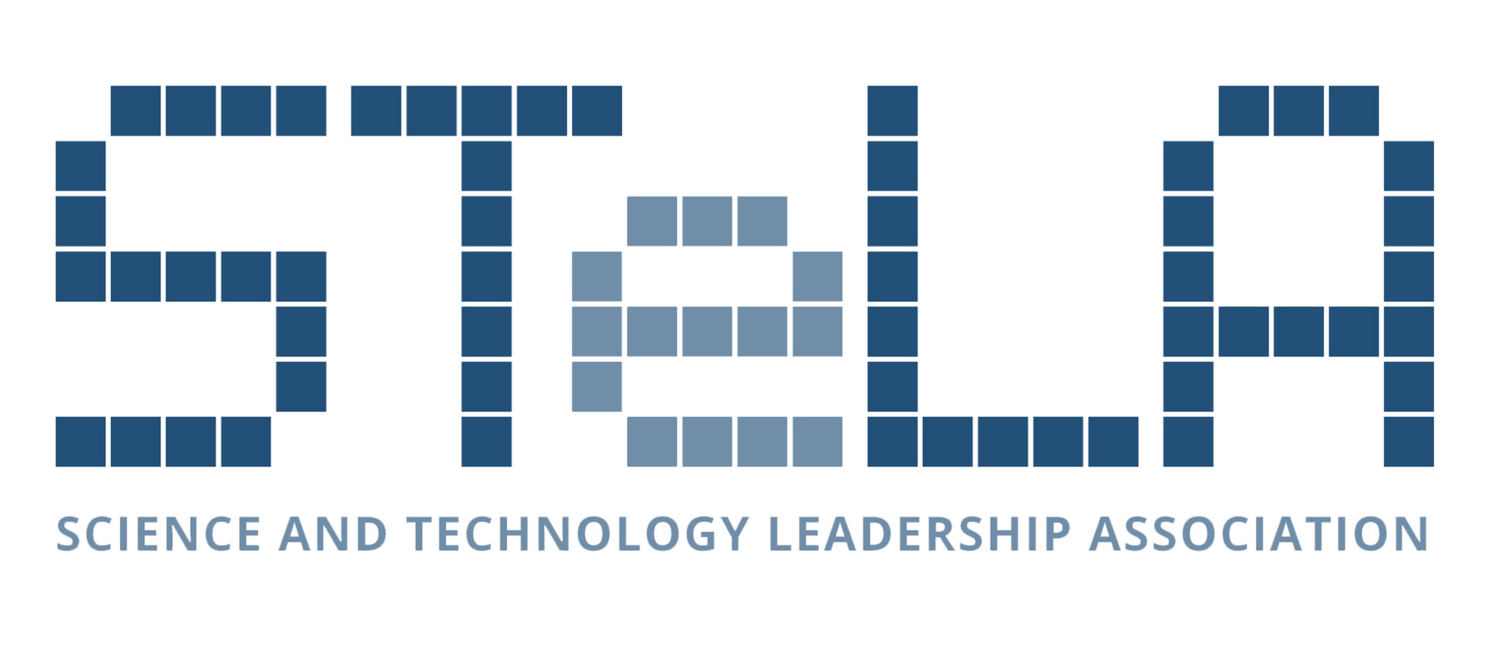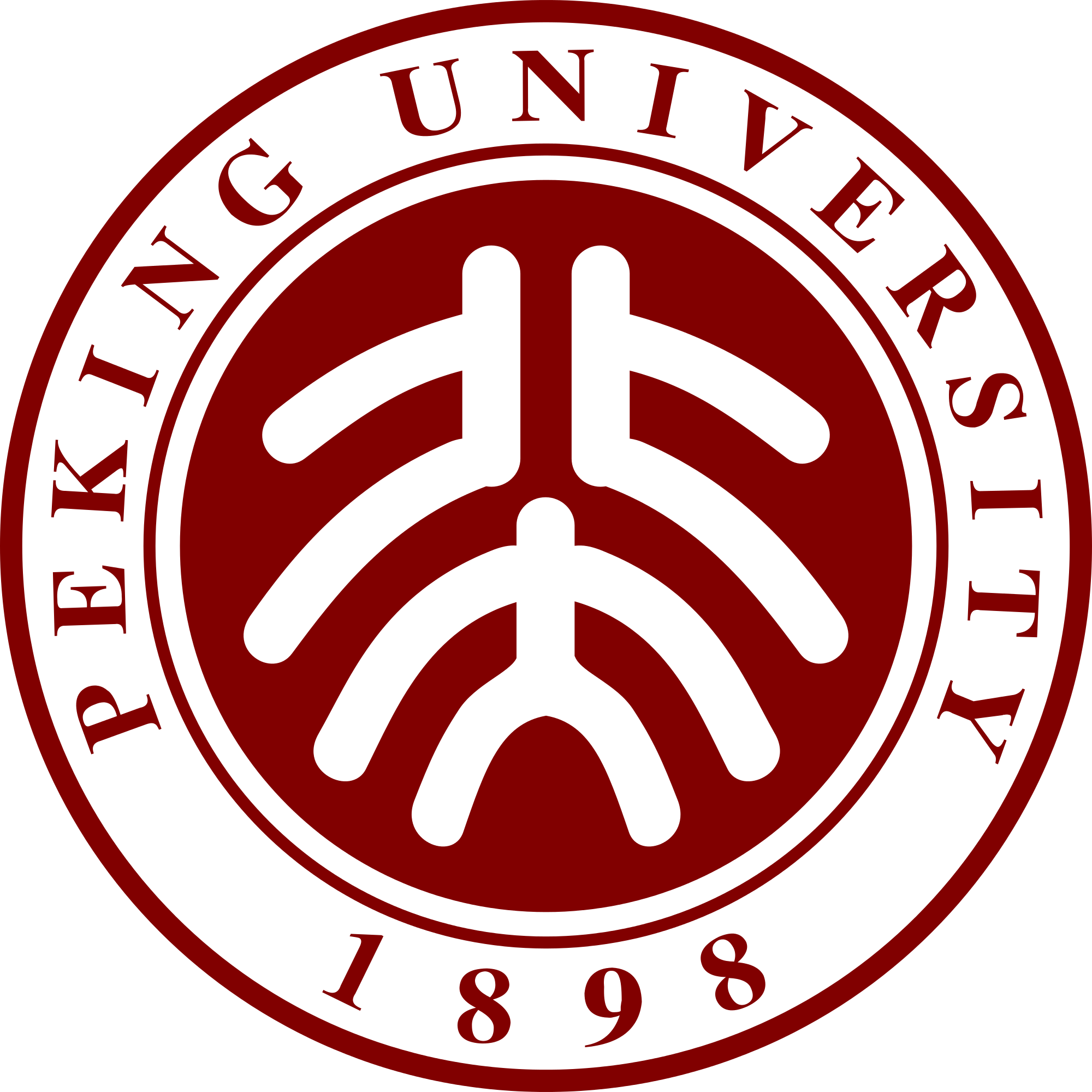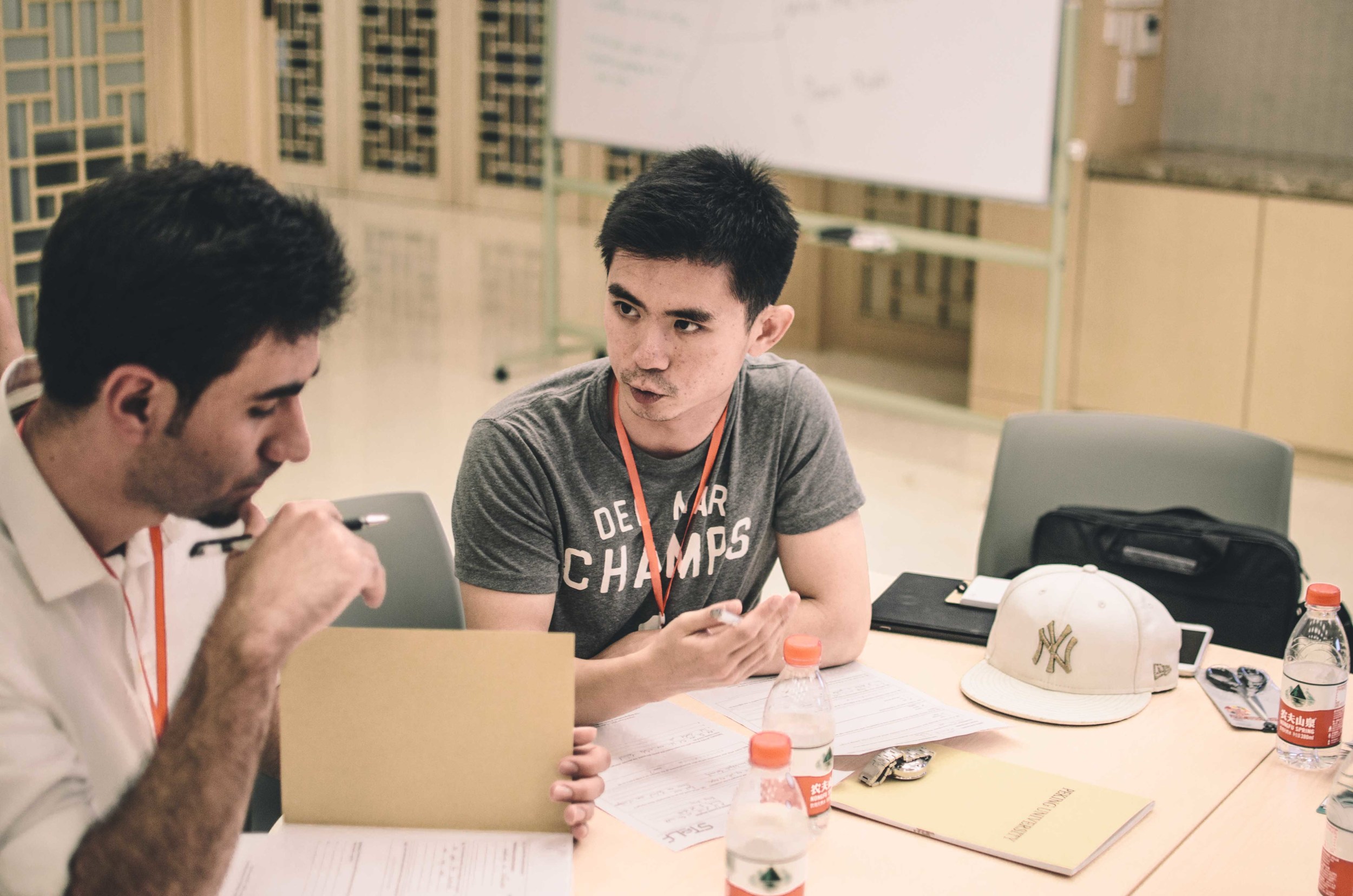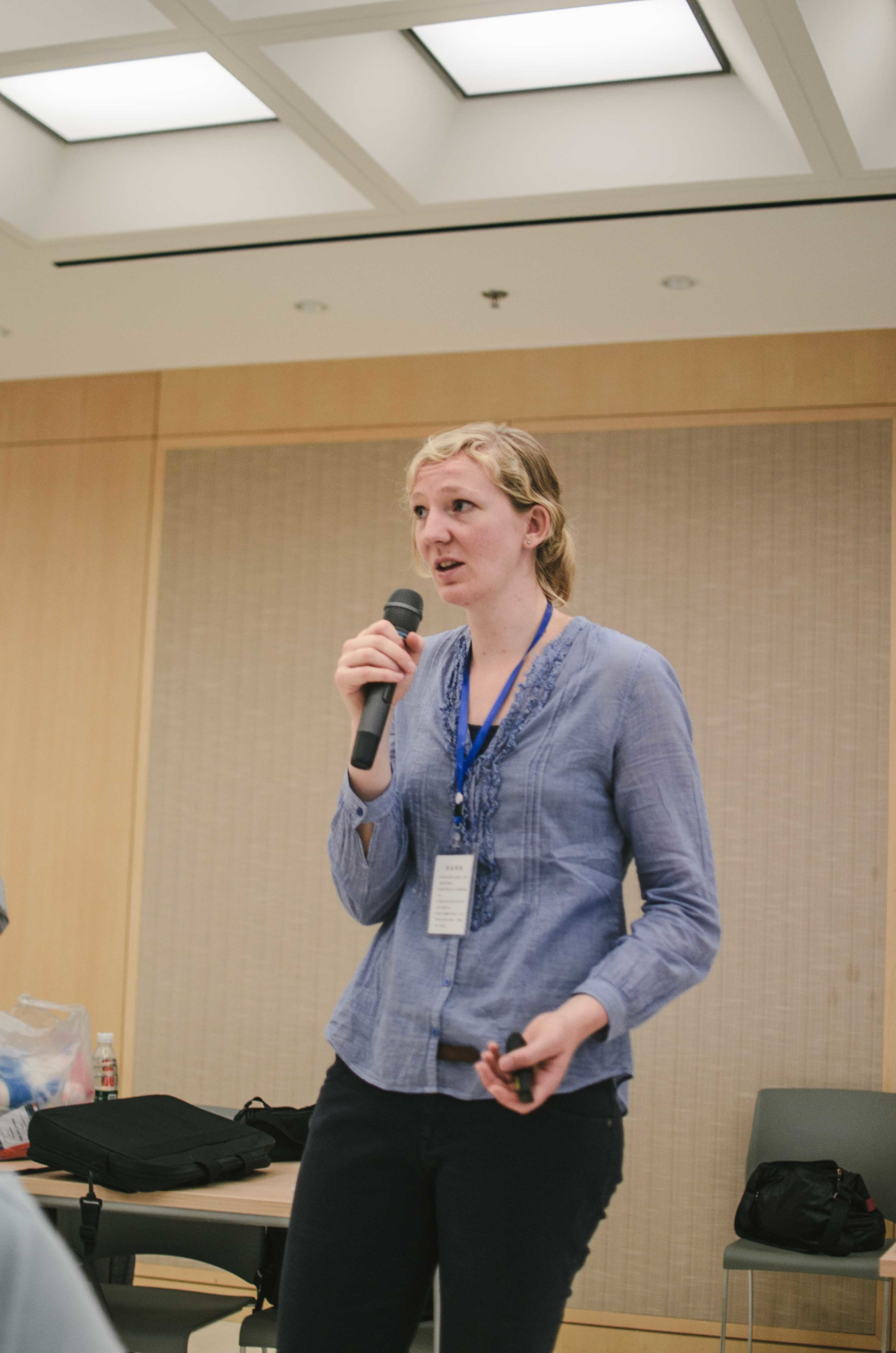In August 2015, 40 students from around the world gathered at Peking University Stanford Center. Participants are originally from Germany, US, Netherlands, Japan, China, India, Syria, UAE, Pakistan, Switzerland and the list goes on forever. During the forum, they were in undergraduates, masters or Ph.D program at their home university. Thus, STeLA Leadership Forum 2015 was diverse in not only national and cultural aspects, but also in terms of the academic experiences. Selected participants were very interactive with each other and they talked about their countries, culture, academics and history. It was also interesting for us to see them discussing about future careers and some very personal topics. Every year, students gather mainly from the US, Europe, China and Japan, which leads to very diverse, international and sometimes chaotic environements that people ususallly don't experience in their academic life. This is what makes STeLA unique.
The theme of 2015 forum was "Era of Information." For our keynote speaker, we invited Jeremy Chau, who is very well known for one of the first Chinese employees in Google, angel investor and the founder of Jide. He initiated and conducted the AdWords, RPC, Google Talk, and many other projects in Google. After he left Google in 2008, he cofounded Jide in 2014, and has been CEO of Jide.
As the representative of outstanding young generation in IT industry, Jermy has very unique insight and experience in many relevant areas, and showed extraordinary leadership in his career. We invited him to give this keynote speech with the ambitious topic "The Era of Information Technology: Mistakes made by Google and Jide."
Sub-Themes
The theme of the Forum was split into four sub-themes: Internet of Things, Artificial Intelligence, Big Data, and Cybersecurity. During the thematic sessions each of these fields were briefly introduced before we got the opportunity to experience the problems and practice the leadership theories while solving them.
Internet of Things
”I will answer very simply that the internet will disappear. There will be so many IP addresses … so many devices, sensors, things that you are wearing, things that you are interacting with that you won’t even sense it. It will be part of your presence all the time. Imagine you walk into a room, and the room is dynamic. And with your permission and all of that, you are interacting with the things going on in the room.”- Eric Schmidt, Google ex-CEO
What Eric Schmidt has commented on the world economics forum has actually started to arise. The information technology has developed rapidly, and the internet has become familiar as never before. IT is used not only in PCs and smartphones, but also in infrastructure, agriculture, and economics. Nothing is unrelated to IT nowadays. Internet has invaded even into the legacy industries. Predictions made by Eric, where IT will become indispensable as air, is in the not so-distant future.
In the IoT sessions, we learned the basics of IoT and its applications through lectures. Workshop had been held afterwards, involving idea brainstorming and multiple prototyping in a limited time. The participants had experienced the topic through learning.
Artificial Intelligence
Although AI has become a buzz word in the recent years, the research itself dates back to the mid 20th century. The invention of computers has stimulated researchers of philosophy, mathmatics, logic and psychology into "imitation of human intellect". The predecessors include C.Shannon and A. Turing for the chess program; M. Minsky and D. Edmonds for artificial neurons. In the recent years, commercial use of AI is a popular topic. It is said that the rediscovery of back propagation (supervised learning of neural network) in 1980s was the whole starter. The greatest minds of the world, starting Stephen Hawking and Masayoshi Son, has mentioned that the second paradigm shift, "the singularity", will be granted with AI.
In this session, we have invited Ying Huang, the VP of Lenovo and a member of IBM Watson laboratory. We had lectures on machine learning and R&D at Lenovo. It was quite intriguing to hear that "AI is still an infant. There are still lot to be researched, but its potential in the future is just astonishing." We really had a great time with Mr. Huang.
Big Data
Big data is, as the words themselves describe, innovative in terms of the massive amounts of the information that could be used to lead the useful knowledge, which might disrupt multiple industries to shift our socirty. Big data is unique as it also emphasizes on how data is structured and what kind of characterisitics exist in it. The most essential side of big data is how people can collect tremendous amounts of data, and then analyze them to find results that people never reached before. Big data is already used in multiple webservices such as Amazon; purchase history and accessed item logs are used to meet customers' precise demands. In the near future, various data from location, transportation access and CRM system are expected to be used to prosper big data in multilateral ways.
During the session, STeLA China members created a strategic board game to understand approaches to the use of big data and considerable data risks, along with other competing groups in the workshop.
Cybersecurity
"Why is cyber security important?" -"Because there are risks in the cyber space." Cybersecurity implies the protection against the cyber attacks that are becoming more complex and advanced everyday. The target includes from private information in one's laptop to classified information of the states, and it is essential to protect them as it could potentially damage the society. Cybersecurity is clearly a realm that we must be aware of in today's information society.
For this session, STeLA invited the CTO/CPO of 360, Mr. Xiaosheng Tan. 360 produces one of the most popular anti-virus software in China. He is the former CTO of myspace, and was the technical director and CTO of Yahoo China, R&D director of Alibaba-Yahoo China. Participants learned about the basic knowledge of data security, and had interactive Q&A sessions with Mr. Tan afterwards.
Site Visits: Lenovo HQ & Microsoft Research Asia
Lenovo, the cutting-edge technology company, is the world's largest personal computer vendor by unit sales. From the past 10 years to now, it has leading global shares in PC, smartphones and x86 servers. Lenovo is also well known for successful M&A cases such as IBM. After the successful M&As, Lenovo has been continuously challenging in the IT industry to become the most innovative personal technology company in the world.
Microsoft Research Asia is the third research institute founded by Microsoft in 1999. There are about 220 researchers, which is the 2nd biggest institute following the one in the US. MSRA focuses on 5 realms: natural user interface, data intensive computing, data multimedia, computer science, search. The institute has published over 3000 research papers, and 20 of them got the best awards for execellent works. MSRA has already started over 110 projects with the university research institutes.
Lenovo HQ
@Microsoft Research Asia










